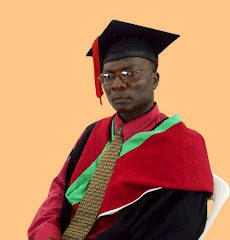Monday, May 26, 2014
Review education sector status, varsities told
The Minister for Education and
Vocational Training Dr Shukuru Kawambwa this week directed the Tanzania
Commission for Universities (TCU) to conduct a study the current status of the
Five-Year Development Plan 2011/2016 for education sector. The plan recommends
all universities and other higher learning institutions to attain the demand by
expanding their intake starting from 2011. Kawambwa was speaking at a closing
ceremony of the 9th higher learning institutions exhibitions on
Friday last week. He said various statistics on requirements for human
recourses suggest more access to education sector for Tanzanians must be
created. “Universities and higher learning institutions have had a big role to
play in attaining this demand by expanding their intake in order to reach the
target of the 2011-2016 Development Plans in education sector.” The plan
indicates specific targets including 26,000 physical scientists, 88,000
architects and engineers, 22,000 life scientists and 64,000 medical, dental and
veterinary scientists, 30,000 economics related professionals and 32,000
teachers and 130,000 managerial workers. On this year’s exhibition, Kawambwa
said at least 66 universities and higher institutions had participated from different
countries including Kenya, Turkey, Uganda Zimbabwe, India, China, United State
and Dubai. He said China had enabled 20 local universities to participate and
exhibit their programmes during such exhibitions that have shown strong
collaboration between foreign and local exhibitors that will also be a catalyst
linkage among higher education institutions. “The government will also continue
to support higher education institutions to achieve desired goals in science,
technology and innovation,” he said. On his part, TCU chairperson Prof Awadhi
Mawenya said this year’s event is themed ‘Learning National Revelopment Through
Higher Education, Science, Technology and Innovation.” The committee chairperson, Dr Naomi Gatunzi
said this education exhibition has enabled visitors including prospective
candidates for higher education to get an opportunity to share ideas and views
on activities offered by those institutions. She said that the 9th
exhibition had become a venue for open debate where high schools and university
students shared ideas on selected topics.
Microsoft reveals shift in cybercrime tactics
Microsoft Corp has released new data indicating that as
attacks against software targets are becoming more difficult and expensive
cybercriminals are increasingly turning to deceptive tactics for malicious
purposes such as stealing people’s personal and financial information. In the
last quarter of 2013, the number of computers that had to be disinfected as a
result of deceptive tactics more than tripled from a similar period the
previous year. This increase in deceptive tactics corresponds with a 70 percent
decline in the number of severe vulnerabilities exploited in Microsoft products
between 2010 and 2013. Additionally, the increased adoption of key security
mitigations across the industry are making it more difficult and expensive for
cybercriminals to develop software exploits. Microsoft Corp director for
Trustworthy Computing, Tim Rains said: “Keeping cybercriminals on the run
requires a robust security strategy,” elaborating that “the safest houses don’t
just have locked doors. They have well-lit entry points and advanced security
systems. It’s the same with computer security - the more we layer our defenses
the better we are at thwarting attacks.” According to Microsoft’s new data, one
of the most common tactics used was deceptive downloads. These downloads were
identified as a top threat in 95 percent of the 110 countries/regions that Microsoft
data examined. Rains also said that
cybercriminals lure their victims with deceptive downloads by bundling malware
with legitimate downloadable content such as software, music or videos found
online. While the threat of deceptive downloads is on the rise, their impact is
often not seen right away. “Infected machines often continue to function, and
the only observable signs of the malicious download might be a slower computer
or unexpected search results popping up in a browser. Over time, fraudulent
activity like click fraud generated from the infected computer can tarnish an
individual’s online reputation,” he said. “Of serious concern in Africa is the
threat posed from illicit software downloaded from the internet, which is
infected with malware deliberately bundled by cybercriminals,” says Daniel
Kamau of the Anti-Piracy Lead for sub-Saharan Africa. “With
the internet population on the continent fast growing, downloading software
online is a popular alternative but can have serious consequences if it’s not
legitimate,” he said. While deceptive downloads were identified as one of the
most prevalent tactics used worldwide, ransom ware is another deceptive
practice that continues to affect people and can be devastating for those
victimized by it. Ransom ware often
pretends to be an official-looking warning from a well-known law enforcement
agency. It accuses its victim of committing a computer-related crime and
demands they pay a fine to regain control of the computer. Ransom ware is geographically concentrated,
but for cybercriminals looking to make a quick profit, the data shows it is an
increasingly alluring tactic. In fact,
the top ransom ware threat encountered globally increased by 45 percent between
the first half and the second half of 2013. In light of this new information on cyber threats,
Microsoft advises customers take a few actions to help keep themselves
protected, including using newer software whenever possible and keeping it up
to date, only downloading from trusted sources, running antivirus, and backing
up files. “Migrating to Windows 8.1 gives users a chance to modernize their
business, and prevent their systems from being attacked by malicious software.
The end of support service is an opportunity for users to build a secure and
robust working ecosystem to avoid any software compliance issues,” said Hasmukh
Chudasama, Microsoft Solutions Business Manager at Dimension Data, E.A. “Most customers who have upgraded so far have
reported that they are seeing reduced malware activity in their networks,” he
asserted. Microsoft releases its cyber
security report twice a year, which culminates data from more than a billion
systems users worldwide and some of the busiest online services. The report provides an in-depth analysis on
the latest threat trends for 110 countries/regions worldwide and is designed to
help inform people about the most prevalent global and regional threat trends
so that they can better protect themselves and their organizations.
Police net six ‘mbwa mwitu’ gang leaders
Police in Dar es Salaam have arrested six people suspected to
be ring leaders of the bandit groups who have been terrorizing various
neighborhoods in the city. The culprits are among members of a group known as ‘Panya
Road’ and ‘MbwaMwitu’ who move around in large groups of up to 150 individuals,
breaking into homes and robbing the occupants of laptops, mobile phones,
electronic appliances, cash and other valuables. The commissioner for the Dar es Salaam Special
Police Zone Suleiman Kova told reporters in a press conference on Saturday last
week in Dar es Salaam that, the group have been threatening safety of the people
living in Kigogo, Magomeni, Tabata, Manzese and Mbagala areas.
The commissioner for the Dar es Salaam Special
Police Zone Suleiman Kova
He said investigation has revealed that the incidents occurred
on 18th and 20th May this year after two robbers were killed
who were among the thug groups. “After the terrorizing
tension rose in various parts of the city, police conducted serious
investigation where the six bandits were arrested, four of them Kinondoni
residents and the other two from Temeke,” said Kova. The arrested bandits are Athuman Said (20),
Joseph Ponela who is a Boda Boda rider, Clement Peter (25), Roman Vitus (18)
all residents of Kigogo, while others are Mwinshehe Adam (37) and Daniel Peter
(25) from Temeke.
This group of
robbers ‘Panya Road’ and ‘Mbwa Mwitu’ attack people walking alone, stealing
their valuable belongings and they are usually armed with machetes, clubs and
iron bars. Kova said that on 18th May this year one person was
killed by angry residents after he tried to steal a motorcycle in Kigogo. “On
20th May after the burial of the culprit, a group of those people
believed to be Panya Road members attacked the area and terrorized
neighborhoods,” he said During the fight with the residents another robber was
killed and he was supposed to be buried on the 22nd but he was not
buried on that day due to the tension. He said people at the area started to
spread the messages that the Panya Road group will re-emerge, so he was buried
on the 23rd after police intervention. The police have managed to
control the situation, but there are people who are spreading messages saying
that in some places gang groups continue to attack the area, the commissioner
added.
Thursday, May 22, 2014
Dar in great fear over ‘dengue fever’
There is
increased fear among some Dar es Salaam city residents mostly those living in
flood prone areas over the emergence of dengue fever disease whose prevalence poses
a great threat despite measures being undertaken by the government to curb its
spread. The disease which has now become the talk of the day in some parts in the
city has left many at a crossroad with the majority pleading for the government
to take drastic measures as their safety is more at risk. Speaking in an
exclusive interview mid this week in different parts in the city, residents
living in flood prone areas have expressed their sympathetic fears calling for
the government to take drastic measures in order to help them as they are the
mostly affected victims of the disease. They have lamented that, have no way to
evacuate their home dwellings which are surrounded with stagnant water due to
the on-going rains, and that possibly forms the breeding places for mosquitoes
causing the disease. Wilson Mniko (60) a resident of Majohe in Ilala district
said that, as their areas have been badly affected by rainy water and their
structures submerged by water log, they live in fear because of the formation
of breeding places for mosquitoes. Agness Wankyo (45) a resident of Kitunda
lamented as she look over the situation at her house whose surrounding is full
of water from rain. In view of this she has called on the government’s
intervention to help lives of the people. Abdallah Ally (50) of Kigogo in Dar
es Salaam lamented for those people who are residing in valleys including
himself saying that he is at danger as his life poses danger due to the
disease, thus calling the government for immediate rescue. The residents’ call has come hardly three days
after the
National Institute of Medical Research (NIMR) announced in Dar es Salaam on Tuesday
this week that, it was launching a study to forge techniques of fighting dangue
fever. NIMR Director General, Dr Mwele Malecela revealed this in Dar es Salaam on
Tuesday this week when she briefed reporters on the status of the viral disease
and efforts taken by the governments to combat it. Dr Malecela said the
research to be conducted in Dar es Salaam’s three districts will mainly focus
on the magnitude of the disease and the characteristics of the Aedes (the
mosquito that transmit the disease) including its common breeding areas. She
said the research will use samples of people and mosquitoes from each district
so as to determine which district is dominated by the Aedes mosquito and the time
that they prefer to bite. According to
her, the research will be conducted for a month and the data collected will
help improve the techniques of fighting the viral disease. Meanwhile, the
National Assembly this week directed the government to provide thorough
information on the scale of the fever which has already claimed lives of 3
people in Dar es Salaam including a Doctor of Temeke hospital Gilberet Buberwa.
In a bid to stop the spread of the disease, on Friday this week, Dar es Salaam
Regional Commissioner Said Meck Sadiki directed all three municipal council
executives of Temeke, Kinondoni and Ilala to heighten the fight against Dengue
Fever, which has affected some 490 people since its outbreak last January in
Dar es Salaam region alone. The RC issued directive when he released the
current status report to the media – at which he revealed that the three
municipalities had since set aside Sh218 million to fight the disease. He said
some 940 litres of the spray deodorant Bacillus Thuringiensis Israelensis
(BTI), a chemical used to kill the breeding grounds for the mosquito, Aedes
which causes the disease, had been distributed at strategic centres across the
city, specifically in areas more prone to infection. He added that special
information kits had also been sent to heads of schools and colleges, asking
them to keep their environs clean. The update by the RC shows that 494 people
have been diagnosed with Dengue Fever by last Thursday (May 15) since its
outbreak last January, with the Kinondoni at the head of the list (388 cases),
Ilala 73 and Temeke 32. Dengue
fever is a disease caused by a family of viruses that are transmitted by a type
of a mosquito known as Aedes. The symptoms include as severe joint and muscle
pain, swollen lymph nodes, headache, rash and fever. Treatment of acute dengue
is supportive, using either oral or intravenous rehydration for mild or
moderate disease, and intravenous fluids and blood transfusion for more severe
cases. The number of cases of dengue fever has increased dramatically since the
1960s, with between 50 and 528 million people infected yearly. Early
descriptions of the condition date from 1779, and its viral cause and the
transmission were figured out in the early 20th century. Dengue has become a
global problem since the second World War and is endemic in more than
110 countries.
Wednesday, May 14, 2014
Private school owners want overhaul of sector
The Association
of Managers and Owners of Non Government Schools and colleges (TAMONGSCO) has
called upon the government to establish an independent body that will ensure
equal provision of better education in the country. The association’s chairman,
retired army Colonel Ally Mwanakatwe made the plea on Thursday in Dar es Salaam
when the management of the association met with the chairman of the Tanzania
Private Sector Foundation (TSPF) Dr. Reginald Mengi. In their meeting, Col.
Mwanakatwe highlighted various challenges his association is facing and how
they wish to overcome them to ensure they move on with their mission of
providing education in the country. He said that, the government has changed
its course and directed private schools to become more competitive instead of
making them to become important stakeholders for the education sector. He said
that it is high time for Tanzania to think of having an improved education
system like other countries, noting that the country would never reach such a
level if there will not be an independent body to regulate and supervise
operations that match with the country’s educational needs, for public and
private schools in the country. He said the current system of carrying out
inspections and policy making without incorporating the stakeholders shows that
the sector is using an outdated curriculum, which leads to discrimination among
users of education services. “What we are asking the government is to look at
how to establish an independent body to deal with the issue which will create
conditions of equality for private and public schools,” he said. Col.
Mwanakatwe further noted that the situation is bad as the government has made
private schools to be more competitive in this sector which is not good for
everyone. On his part, the secretary of the association Benjamin Nkonya said
the government could have used subsidies through a voucher system to students. In
this way he said it could have reduced costs for private schools so as to build
a firm foundation in teaching methods in schools and colleges. “We know there
is a system of giving subsidies to private schools and colleges from the
government, but due to unknown reasons the system is no observed, which causes
difficulties in administering the teaching curriculums in schools and colleges,”
Nkonya said. Operational difficulties facing education investors have forced
many to give up, failing to continue providing education services. Other
challenges facing the owners’ association is lack of capital as most banks set
high interest rates and stringent conditions which make educational investors failing
to perform as required. Numerous taxes imposed and lack of students’ loans count
among challenges still hampering the development of the sector. Dr. Mengi was
receiving reports from the stakeholders, where he said most Tanzanians lose the
use of their resources due to lack of education which would guide them into
proper understanding of their rights. He said ignorance is the source of many
people not to participate effectively in various economic activities and
instead such activities are done by foreigners, who benefit from the local
resources. “Bad contracts entered by the government are a contributing factor to
make a nation not to benefit. They are caused by ignorance, an aspect which
foreigners use as an opportunity to benefit as they monopolize the country’s
economy,” said Dr. Mengi. TPSF has received numerous challenges of such kind
and is currently working on them in order to normalize the situation so that
the government would take drastic steps to save the nation, the noted
entrepreneur intoned.
Subscribe to:
Posts (Atom)










